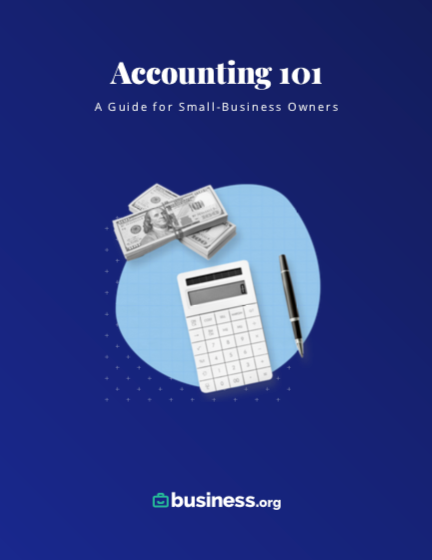💸 See if your business qualifies for a tax credit worth up to $26k per employee. 📞 Call Now: 855-979-9597
How to Pay Yourself as a Business Owner
We are committed to sharing unbiased reviews. Some of the links on our site are from our partners who compensate us. Read our editorial guidelines and advertising disclosure.
Just like their employees, business owners need to get paid. Depending on what type of business you run (for instance, an LLC or S corporation), you can pay yourself in one of two ways: through an owner’s draw or by paying yourself a salary. Below, we define these two pay methods, discuss their pros and cons, and explain which one you can choose based on your business structure.
How to pay yourself as a business owner
What’s the difference between an owner’s draw and a salary?
Paying yourself a salary is the same as paying one of your salaried employees. You set a regular payment schedule and a regular payment rate. If you use full-service payroll software, the service will automatically deduct payroll taxes from your paycheck, including your income taxes, Medicare, and Social Security taxes (FICA taxes).
If your business is a C corporation, S corporation, or LLC set up to be taxed like a C or S corporation, the IRS requires you to pay yourself via salary.
With an owner’s draw, you pay yourself out of your business’s profits. Instead of getting paid on a regular basis as you would with a typical salary, you withdraw funds from your profits as needed. You don’t need to pay taxes immediately on the funds you withdraw, but you’ll need to pay them eventually. It’s wise to estimate how much you’ll owe in income and FICA taxes and put that cash in a separate account for tax season.
If your business is a sole proprietorship, partnership, or LLC that isn’t set up to be taxed like a corporation, the IRS typically requires you to pay yourself via owner’s draw.
By signing up I agree to the Terms of Use and Privacy Policy.
Salary vs. owner’s draw pros and cons
As we said above, your business’s structure plays the biggest role in determining which method you can use to pay yourself. Still, it helps to know the benefits and drawbacks of each payment type, especially if you haven’t yet established your LLC. (Remember, if you set up your LLC with a corporate pay structure, you must pay yourself with a salary. Otherwise, you’ll pay yourself via an owner’s draw.)
Salary pros and cons
Paying yourself a salary means you’ll have a steady, stable paycheck—which is much easier to budget with than the as-needed, sporadic withdrawals you make with an owner’s draw. Additionally, with a salary, you don’t need to estimate your taxes or risk falling short on funds by the end of the year when it’s time to file.
Taking a salary can also benefit your corporation’s bottom line. The company can write off employee salaries and the employer’s portion of FICA tax when filing taxes at the end of the year.
As a heads up, S-corp owners can make owner’s draws in addition to taking home a salary, but C-corp owners can only take a salary. C corporations are technically owned by their shareholders, not the business owner. If you want more money than you receive as your salary, the company will need to give you a dividend payment, which isn’t tax deductible, or a bonus, which is.
Owner’s draw pros and cons
Owner’s draws are more flexible than salaries, which is both a benefit and a drawback. On the one hand, you can pay yourself what you need and when you need to. On the other hand, sporadic payments make budgeting harder, not easier, both for your business and household. Similarly, owner’s draws aren’t taxed right off the bat, so you’ll have more cash in hand. But on the flip side, you could miscalculate your small-business taxes and end up owing the government once tax season rolls around.
Remember, if you’re self-employed instead of part of a corporation, you can’t pay yourself as a salaried W-2 employee. The IRS considers you a sole proprietor, so your business’s profits and personal income are one and the same. (The IRS also categorizes owners in partnerships or multi-member LLCs as sole proprietors for tax purposes.)
How much should you pay yourself?
If you own a corporation, you need to decide on a fair salary to pay yourself. According to the IRS, your salary as a business owner should compare to the average pay for someone in your industry with your level of education and experience.
If you’re a sole proprietor paying yourself as needed through an owner’s draw, figuring out a reasonable salary can be even trickier. You want to bring home enough to cover your household expenses, but you don’t want to withdraw so much that your business struggles. Look at your average monthly budget and the average pay for someone in your field while you decide on a fair paycheck.
Whatever your salary ends up as, keep it reasonable. Paying yourself too much will negatively impact your business’s profits—and you obviously don’t want your salary to put you out of business. At the same time, remember that you should pay yourself. Running a business is undeniably hard work, and everyone deserves to be paid fairly for the work they do—including you.
Are you tired of calculating payroll by hand? Enter some basic information about your business, including how many people you pay each pay period, and we’ll email you up to five personalized payroll software quotes .
Payroll widget code component thingy beneath this paragraph!
The takeaway
You’re working hard to ensure your business succeeds, and you need to receive payment for that time and effort. Whether you can do so with an owner’s draw, salary, or both depends largely on your business’s tax structure. Before launching your business, talk to an accountant or financial advisor to get personalized advice on which structure is right for you.
Ready to get your LLC off the ground? Learn more about who qualifies for an LLC loan and how to apply if you do.
Related reading
How to pay yourself as a business owner FAQ
As a small business owner, you can pay yourself a salary or through an owner’s draw. Your business setup will determine the right pay structure for you. If your business has a structure like a corporation, you must pay yourself a salary. If you’re self-employed, you’ll pay yourself with an owner’s draw.
The IRS requires business owners to pay themselves a reasonable salary, which means an amount similar to what anyone in your field with your level of experience could expect to make.
Bringing home more pay than you need can put your business on shaky financial ground. And if you own a corporation, it can also get you in trouble with the IRS and your shareholders. Taking home too high a salary may signal an unfair distribution of the company’s total dividends.
Disclaimer
At Business.org, our research is meant to offer general product and service recommendations. We don't guarantee that our suggestions will work best for each individual or business, so consider your unique needs when choosing products and services.





